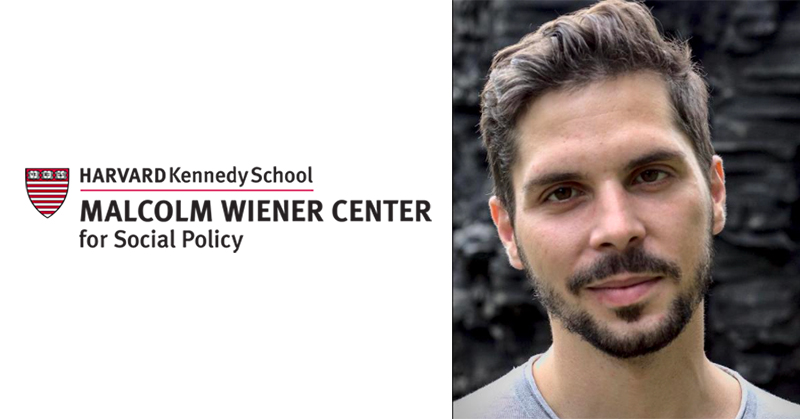Gonçalo Pessa Costa, a doctoral candidate in economics, will continue and expand upon his research on ways to improve the enforcement of labor laws.
Gonçalo Pessa Costa, who was a member of the international team that launched the Stone Center’s GC Wealth Project and will receive his Ph.D. in Economics from the Graduate Center in June, will start a two-year postdoctoral fellowship at Harvard Kennedy School’s Malcolm Wiener Center for Social Policy this summer.
At the Kennedy School, Pessa Costa will work on methods aimed at improving the enforcement of labor laws. “The idea is to develop better statistical tools and other techniques to identify firms that are engaged in wage and time theft from workers, that pay below minimum wage, that require off-clock work, or are noncompliant with labor laws in other ways,” he says. “By coming up with ways to better identify when that happens, we can improve how we manage the limited resources of the federal and state labor departments to enforce labor laws.”
The project will draw on state-of-the-art computational techniques, such as machine learning, that Pessa Costa used in his dissertation research. (His dissertation committee was chaired by Stone Center Senior Scholar Paul Krugman, and included Senior Scholar Miles Corak and Affiliated Scholar Ellora Derenoncourt). For his dissertation, Pessa Costa scraped information from Craigslist to study how dynamic monopolies play a role in New York City’s rental housing market. “There’s a form of market power that results from the fact that people tend to get locked into a housing unit,” he says. “Even if the landlord increases the rent by 3 or 4 percent above the market, renters don’t immediately move out. That goes against standard economic theory, which says there’s only supply and demand, and where they intersect is a market price — and if landlords charge anything above that market price, people will immediately move out.”
Pessa Costa’s next project will draw on similar economic theories. What he found in rental housing markets is “very close to what we have learned in the past decades about labor markets, which is that this framework of perfect competition — simply looking into supply and demand — is not a very accurate depiction of how labor markets work,” he says. “Once you land a position, you create relationships with your coworkers, you might like the amenities in your establishment, and it’s not that easy to find new jobs. So there is a lock-in effect.” That effect gives employers more leeway in deciding wages and hours than rules of supply and demand would suggest, he says.
Pessa Costa’s interest in economics and inequality dates to his time as a high school student in a village near Coimbra, Portugal, in the years following the 2008 financial crisis, when the International Monetary Fund, European Commission, and the European Central Bank imposed austerity measures on the country. “It was a dark period in Portugal,” he says. “Technocrats told us there were no alternatives to wage cuts and huge budget cuts to education and the healthcare system.”
After graduating, he went on to earn a B.Sc. and an M.Sc. in economics from Lisbon’s Nova School of Business and Economics. At the Graduate Center, he worked on the GC Wealth Project’s Wealth Topography section, which focuses on assets and debts held by households in countries around the world. Throughout all of his work, his goal has remained unchanged. “I want to be a social scientist who can help people understand how society works,” Pessa Costa says. “And to come up with ways to understand political alternatives and public policy alternatives that could improve the life of working people.”


